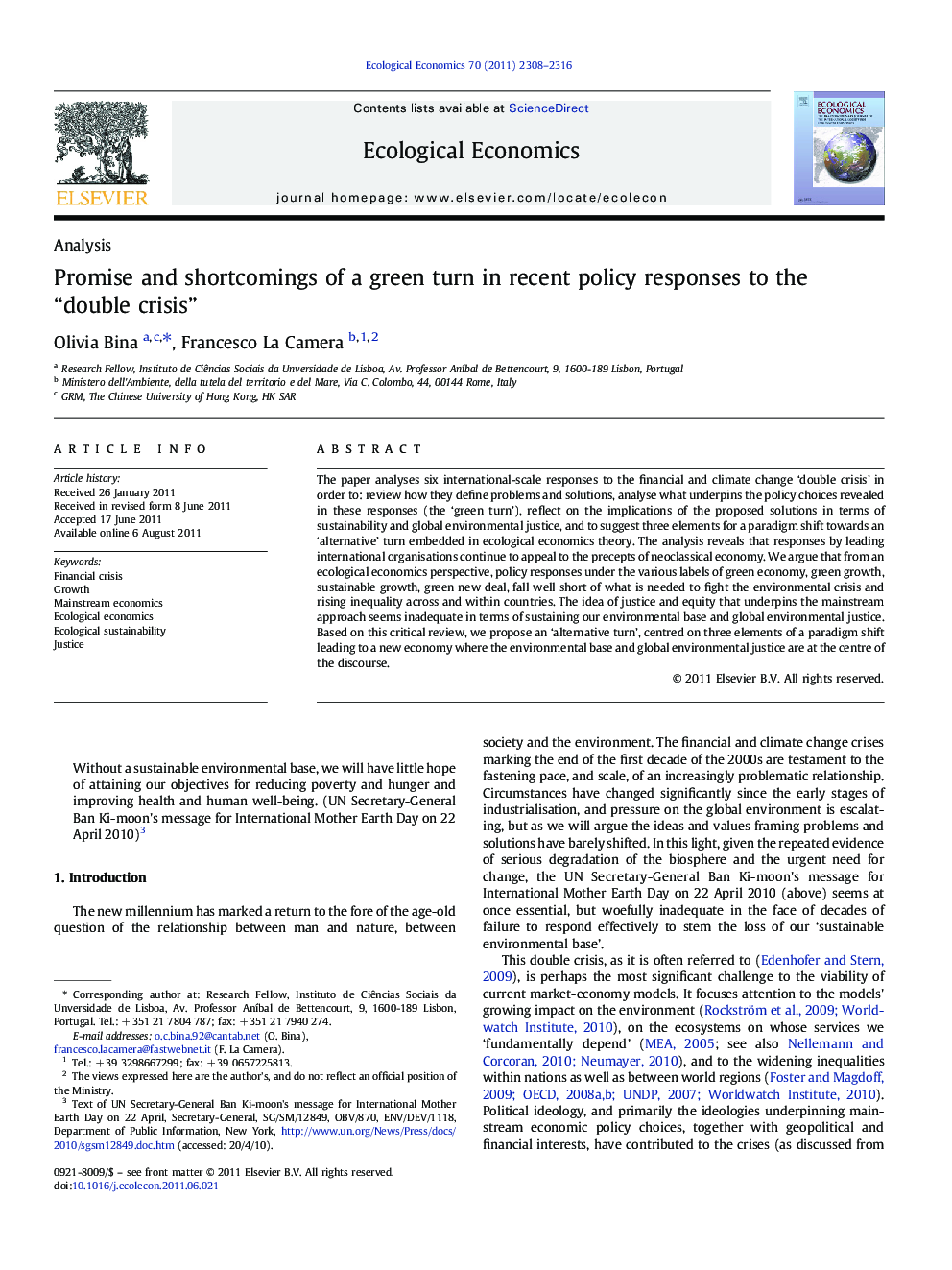| Article ID | Journal | Published Year | Pages | File Type |
|---|---|---|---|---|
| 5050496 | Ecological Economics | 2011 | 9 Pages |
The paper analyses six international-scale responses to the financial and climate change 'double crisis' in order to: review how they define problems and solutions, analyse what underpins the policy choices revealed in these responses (the 'green turn'), reflect on the implications of the proposed solutions in terms of sustainability and global environmental justice, and to suggest three elements for a paradigm shift towards an 'alternative' turn embedded in ecological economics theory. The analysis reveals that responses by leading international organisations continue to appeal to the precepts of neoclassical economy. We argue that from an ecological economics perspective, policy responses under the various labels of green economy, green growth, sustainable growth, green new deal, fall well short of what is needed to fight the environmental crisis and rising inequality across and within countries. The idea of justice and equity that underpins the mainstream approach seems inadequate in terms of sustaining our environmental base and global environmental justice. Based on this critical review, we propose an 'alternative turn', centred on three elements of a paradigm shift leading to a new economy where the environmental base and global environmental justice are at the centre of the discourse.
⺠We review six international policy responses to the financial and climate change/environmental crises. ⺠We identify the theoretical elements that shape this 'green turn'. ⺠We reflect on the implications of this turn in terms of sustainability and global justice. ⺠We suggest three elements for a paradigm shift towards an 'alternative' turn that draws on ecological economics theory.
